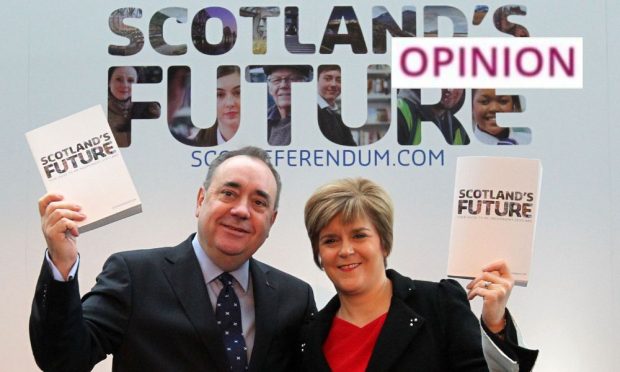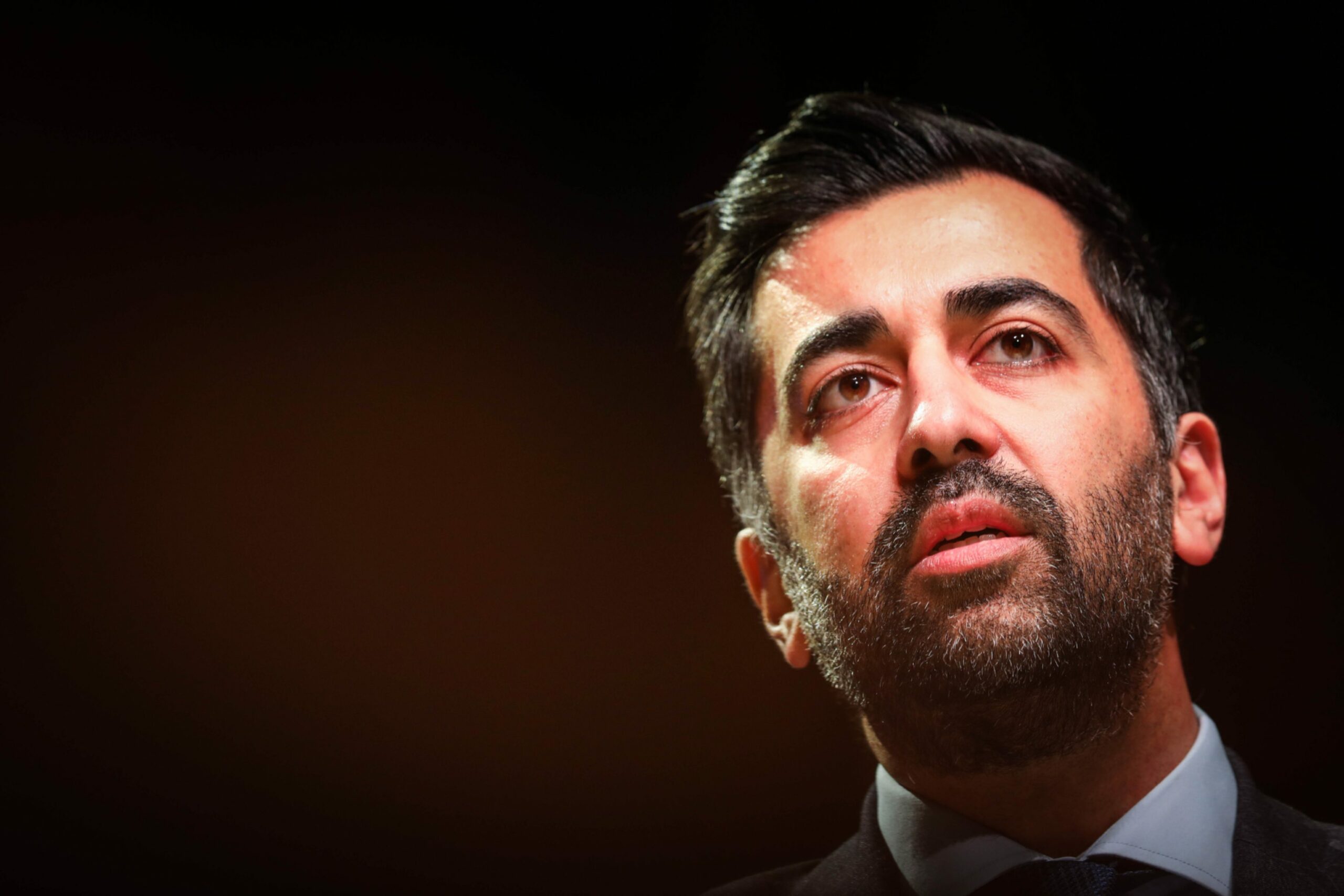The SNP should not be celebrating the ten-year anniversary of the independence referendum.
It should be using it as an opportunity to beg for forgiveness from the people of Scotland.
Let us look at the facts.
Were Scotland to have voted Yes on the nationalist prospectus, the country would currently be in a period of major austerity, without a recognised currency and with a massive deficit.
It would be out of the EU and a pariah among Nato member states.
The economic golden goose – oil and gas – would have failed to deliver the spending bonanza the nationalists promised.
In any event, they would soon demand the industry shut down anyway.
Scotland’s economy and global position would, in short, have been destroyed, and for that the SNP should apologise.
‘Ruined friendships’
So too should the nationalists apologise for the dark forces their referendum unleashed.
The SNP took the hugely emotive subject of identity and weaponised it in a winner-takes-all binary contest.
It turned families against one another, ruined friendships and divided communities.
Most importantly, it made those who view themselves as both Scottish and British to feel somehow lesser, somehow inadequate and somehow a failure.
Much of this may have been inadvertent but lack of deliberate intention can only partially mitigate responsibility for the consequence.
Certainly, even those at senior levels in the SNP were happy to overlook and, in some cases, condone, keyboard warriors – so-called cybernats – who trolled, bullied and attacked any who dared deviate from the nationalist creed.
It is true supporters of the No side also undoubtedly engaged in such unpleasantness and have much to reflect and apologise for too.
But that only serves to prove the referendum, far from being a celebration of civic democracy, in many forums often amounted to little more than mud-slinging.
Equally, the nationalists were comfortable to let disinformation and fake news run rampant, with senior SNP politicians failing to properly challenge even the most egregious of false claims about hidden oil wealth or security service interference in the referendum process.
In some cases, they even fanned the flames of such damaging untruths.
‘Deeply embarrassing’
Meanwhile, campaigning in the real world was little better.
Those supporting the Better Together campaign were branded traitors and quislings.
Some were spat at or subject to physical threats. Jim Murphy was egged.
Hardly a festival of democracy then, and more football hooliganism masquerading as civic engagement. For this, again, the SNP should apologise.
Then there are the personalities involved.
It is always worth remembering that, had the Yes campaign won a decade ago, the new leader of the independent state would later have been arrested by police and charged with serious crimes.
He was cleared, but it is difficult to believe this – along with the subsequent arrest of his successor – would have been anything but deeply embarrassing for the country.
It was also the referendum campaign itself and the promise of independence that appears to have allowed some more troubling behaviour to develop unchecked.
Humza Yousaf recently claimed in a BBC documentary that Alex Salmond abused his position of power as first minister [Mr Salmond dismissed the criticism as “smears”].
But Yousaf, we can deduce, did nothing about it at the time because to do so would be to risk undermining the referendum and independence.
For this too, the former first minister, who resigned earlier this year, and his colleagues should apologise.
None of this is to criticise those who voted Yes ten years ago, or even those who would still vote Yes today.
Brexit is a cautionary tale, but also evidence that Scotland is not alone in having duplicitous politicians who are willing to weaponize identity to sell a false hope.
But it is revealing, watching the SNP’s celebrations ten years on, just how oblivious some nationalists can be to the harm the contest caused Scotland not just politically, but also economically and societally.
‘Toxic legacy’
Equally, watching such celebrations makes it easier to understand why the nationalist cause has not kicked on since 2014.
Due to its inability to analyse the referendum dispassionately – and to recognise the experience and concerns of the other side – it cannot make the necessary adjustments to its prospectus to win.
Remarkably, more than a decade after the Yes campaign was exposed for its lack of a “Plan B” on currency, it has still failed to come up with one.
Where the SNP is correct is that the referendum brought more people into politics, and that it fundamentally changed Scotland.
In contrast to the pre-referendum era, even those with only the most cursory interest in politics can now tell you whether they are a nationalist or a Unionist and will probably judge you on your response.
On current polling, that division seems unlikely to vanish any time soon.
A decade on from the referendum, that is perhaps its most toxic legacy of all.













Conversation